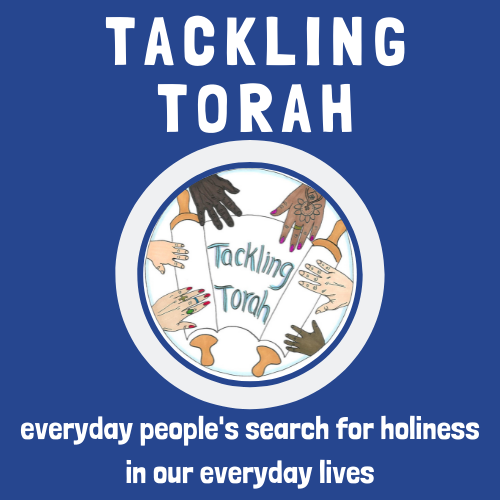 On Tuesday August 9th, the Jewish people observed Tisha B'av. In all honesty I’ve never been to a Tisha B’av service, and only have a brief understanding of what the holiday is all about. But I do know it is about mourning for the literal and metaphorical destruction that has been caused and looking forward to “olam ha’ba” the world to come.
On Tuesday August 9th, the Jewish people observed Tisha B'av. In all honesty I’ve never been to a Tisha B’av service, and only have a brief understanding of what the holiday is all about. But I do know it is about mourning for the literal and metaphorical destruction that has been caused and looking forward to “olam ha’ba” the world to come. So I’m gonna try to unpack this holiday a bit for myself and hopefully for you. Here goes….
In our lives: Each year my close friend sends a very personal message in the spirit of Tisha B’av on her own challenges that are acting destructively in her own life and reflects on how to turn these challenges into a positive light. Each year I’m able to learn about her current struggles and am pushed to see the world through her eyes and reflective process where she finds the good out of the bad and continues to strive towards building this positive energy.
As with Yom Kippur it is tradition to fast on Tisha B’av since you are consumed in a full day of prayer and mourning. Fasting reminds us of physical pain which to me represents the pain that our people have felt each time there was further tragedy on this historic day of tribulations.
Reflecting: For me, the destruction of the first and second temples and the expulsion of Jews from Spain and England all of which occurred on the 9th of the Jewish month of Av symbolize a greater feeling of homelessness. Here is a full list of the losses on Tisha B’av (the 9th of Av). Homelessness doesn’t necessarily have to mean without a physical home for prayer as it may have meant for the Jews in 586 and 516 B.C.E. it can mean many things. It can mean feeling alone, or left out from your family, or community. When we feel like we don’t fit in we may feel physically and spiritually homeless, or uncomfortable. Loss in our lives can create this feeling as well whether actually losing a home, a job, a parent, family member, or a friend we mourn that which we no longer have. Our home which once was is no longer and our morning consumes us.
Where to go from here: I think a good amount of reflection on our lives and the ways we interact with others allows us to grow spiritually. If we continue to live our lives without a healthy self-check and evaluation of where we are and where we are going we can wind up being very distant from even ourselves. Tisha B’av is about morning communal loss. But you can choose to bring that closer to home by evaluating the ways in which you have been destructive to your home, your family, your friends, your professional relationships. Are you working on building the new “metaphorical” temple or are you tearing down the walls around you? Where do you turn towards home? Do you feel homeless or at a loss for what once was? On Tisha B’av the Jewish community mourns with those who feel alone and defeated. But the next day we pick up and begin to hope again for the beit hamikadash (house of the holy).
“I think it's important to recognize that we can't just hope. We can't just have faith that mashiach will come. We have to be proactive. We must examine who we are, what we're doing, and what we need to do to be worthy and meritorious of the next step in our cycle.” Cindy Kaplan Tisha B’av thoughts 2010.
So whether you feel lonely or without a home, or whether you are grateful to have a life where you feel uniformly whole we each could gain something from reflecting on destruction and rebuilding within our lives. Don’t just mourn take steps towards repair, and then we truly will live in a holy world.





